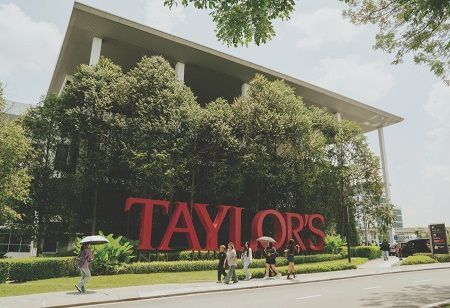- Taylor’s University ranks 253rd globally in the QS World University Rankings 2026, placing it in the world’s top 1 percent and the highest-ranked private non-government-linked university in Southeast Asia.
- Ranks 92nd worldwide for employer reputation, with 99.5 percent graduate employability, reflecting its strong focus on real-world skills, industry collaboration, and AI-driven learning.
- Boasts top-tier global exposure, with international chefs, Nobel laureates, and multicultural programs shaping an interdisciplinary, innovation-led academic experience.
Taylor's University has maintained its ranking within the world's top one percent in the QS World University Rankings 2026 at position 253 globally. It is the highest-ranked private non-government-linked university in Southeast Asia and ranked 92nd position globally for employer reputation, the highest among private universities in the region.
While proud of its accolades, Taylor's University remains focused on equipping students with practical skills and real-world experience that extend well beyond the classroom. Vice-chancellor and president Professor Barry Winn explained that the university is committed to providing world-class education that blends academic rigour with purposeful innovation and industry collaboration.
"We are expanding our student base, investing in people, and building capabilities to meet global challenges through industry collaboration, artificial intelligence driven learning, and meaningful innovation, In so doing, we are supporting Malaysia's drive to nurture talent and establish the country as a regional education hub", he added.
Taylor's also places 34th internationally in terms of its international student population, which speaks to its initiative towards establishing a multicultural learning space. The university seeks to graduate students who are flexible, critical thinkers, and able to address local and international issues. Taylor's academic experience is constructed with high levels of practitioner and organisational influence.
Curricula are co-designed to address relevance to immediate and future challenges in industries. From the start, students are exposed to learning that incorporates live projects, problem-solving exercises and internships within the academic framework.
This model helps the university's 99.5 percent graduate employability rate, as indicated by the 2024 Graduate Tracer Study of the Higher Education Ministry, standing above the national average of 92.5 percent.
The Culinary Institute of the university provides more than technical instruction. Students gain hands-on experience in workshops and masterclasses with Michelin-starred chefs, while doing internships at top restaurants across Japan, France, Spain and the United States.
Bi-monthly visits by these chefs, such as the Michelin Star Series with The Datai Langkawi, provide students with unique opportunities to engage in masterclasses, workshops and networking events on campus. The programme also features modules in entrepreneurship and sustainability, equipping graduates with a range of careers in hospitality, food innovation and business.
Aside from culinary arts, the university's interdisciplinary initiatives and global student interaction add depth to learning, inviting students to explore their creativity and work across disciplines. Taylor's collaborates with international thought leaders to integrate real-world knowledge into the learning environment.
Among them is Nobel Peace Prize winner and President of Timor-Leste Dr Jose Ramos-Horta, who is honorary adjunct professor in its Philosophy, Politics and Economics program. His presence exposes students firsthand to issues like diplomacy, government and world problem-solving.
The university continues to spend on AI-based learning technology, increase hybrid and interactive pedagogies, and enhance industry and community connections. Research activities are coordinated to national and international priorities as an obligation in Taylor's quest to assist Malaysia's development as well as locate the country as a regional education hub.

